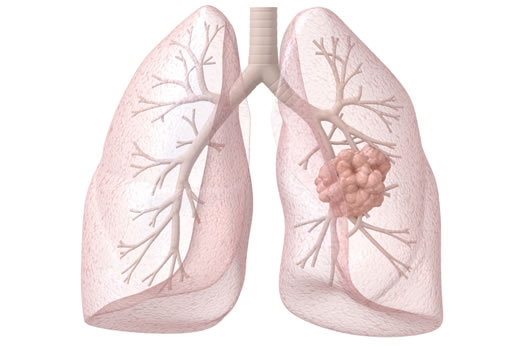Cigarette smoking is the main risk factor for most patients who develop lung cancer; however, some patients who are diagnosed with lung cancer have never smoked a cigarette. Physicians today are seeing more non-smokers and light smokers with lung cancer. Why do these people get lung cancer?
"We now understand that exposure to secondhand smoke can cause lung cancer," says Dr. Rathi Pillai, Assistant Professor in the Division of Hematology and Medical Oncology at Emory. "In fact, even passive exposure to tobacco smoke increases your risk for developing lung cancer."
Secondhand smoke is responsible for 3,000 lung cancer related deaths a year in the United States, and there's a 20 to 30 percent increased risk of developing lung cancer for nonsmokers living with a smoker. This is why so many cities have passed laws to limit smoking in restaurants, bars and clubs. Many workplaces are also becoming tobacco-free to protect the health of their employees.
Other factors that play into lung cancer among non-smokers:
- Other environmental exposures besides tobacco smoke have been associated with lung cancer including chemicals used in some workplaces, such as asbestos, tar and soot and heavy metals like chromium, nickel and arsenic. There has also been an association with radon gas and lung cancer, especially in people exposed to high levels of radon, such as uranium miners. People who have been exposed to large doses of radiation, like atomic bomb survivors in Japan, also have a higher risk of lung cancer. It is still unclear how much of a factor air pollution plays in developing lung cancer.
- Family history can also impact chances of being diagnosed with lung cancer. There is almost a two fold increased risk of lung cancer in a person with a family history and this risk is even higher if more than two relatives in a family have lung cancer. We still have not identified a particular gene that is passed on in these families that makes them more prone to lung cancer; however, at Winship Cancer Institute of Emory University, genetic testing is now given to every patient diagnosed with lung cancer to identify specific mutations in tumor tissue that may inform treatment decisions.
- Research has identified genetic mutations in lung cancers from people who have never smoked or are/were light smokers. These mutations are not inherited, rather they originate in the lung tissue and create lung cancer. Interestingly enough, mutations in the epidermal growth factor (EGFR) and ALK genes have been found more frequently in lung cancer patients who never smoked. These patients can be treated with drugs that target these specific mutations. Researchers at the Winship Cancer Institute are also involved in more extensive genetic testing of tumors to find other mutations that could explain why non-smokers develop lung cancer. Understanding more about these genetic changes and other factors will help us be able to treat all lung cancer, particularly those in non-smokers, with better, more personalized treatments.

